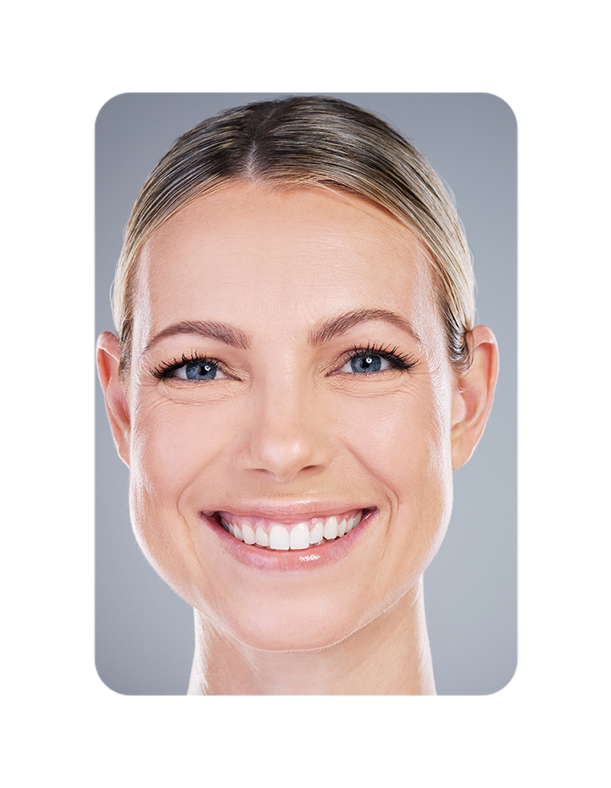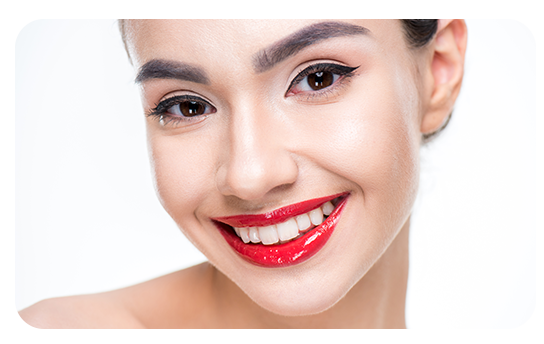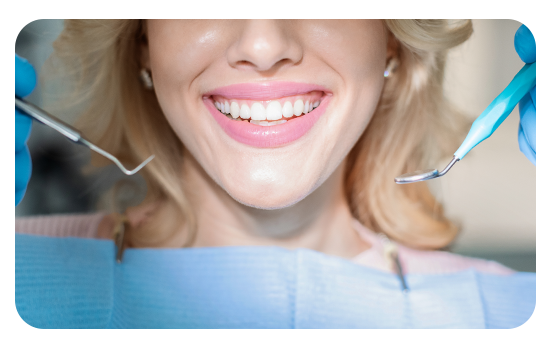Hollywood Smile
In today's world, aesthetic dentistry goes beyond just healthy teeth to offer a perfect smile. One of the most popular treatments in aesthetic dentistry in recent years is the Hollywood Smile, or Hollywood Gülüşü in Turkish. At LHC Clinic, we’ve put together this article to explain what Hollywood Smile is, who it’s suitable for, the application process, and the things to keep in mind.
What is Hollywood Smile?
✨ Hollywood Smile is the process of reshaping the teeth's shape, size, color, and alignment to fit the person's facial structure in an aesthetically pleasing way. This technique aims to create a whiter, more symmetrical, and attractive smile, taking inspiration from the iconic smiles of Hollywood celebrities. At LHC Clinic, this procedure is frequently chosen by both women and men.


How is Hollywood Smile Done?
How is Hollywood Smile Done?
🦷 Hollywood Smile is customized for each individual, and the process at LHC Clinic typically progresses as follows:
- Examination and Planning: A detailed oral examination is performed; the structure of the teeth, jaw alignment, and gum health are assessed.
- Digital Smile Design: Advanced digital software is used to simulate your new smile and show you a preview.
- Teeth Whitening and Adjustments: Teeth cleaning, whitening, or orthodontic corrections are made.
- Porcelain Laminates or Zirconium Crowns: For the final aesthetic look, porcelain laminates or zirconium crowns are applied.
Who Is Suitable for Hollywood Smile?
🦷 Hollywood Smile can be applied to anyone who desires an aesthetic smile and has a healthy oral structure. Ideal candidates include:
- Those with tooth discoloration, stains, or yellowing
- People with short, chipped, or worn teeth
- Individuals who show excessive gum tissue while smiling (gummy smile)
- Those with gaps, spacing, or crooked teeth
- People who want a younger and more symmetrical smile
Who Is Suitable for Hollywood Smile?
Who Is Suitable for Hollywood Smile?
🦷 Hollywood Smile can be applied to anyone who desires an aesthetic smile and has a healthy oral structure. Ideal candidates include:
- Those with tooth discoloration, stains, or yellowing
- People with short, chipped, or worn teeth
- Individuals who show excessive gum tissue while smiling (gummy smile)
- Those with gaps, spacing, or crooked teeth
- People who want a younger and more symmetrical smile
Note: If there are issues like gum disease or advanced tooth decay, these problems are first treated by the experts at LHC Clinic before the Hollywood Smile procedure.


Is Hollywood Smile Permanent?
Is Hollywood Smile Permanent?
🦷 Hollywood Smile is a long-lasting treatment. Porcelain crowns can last 10–15 years, while zirconium crowns can last 15–20 years with proper care and regular dental check-ups.
What to Do After the Treatment?
✅ To preserve the beauty of your new smile after treatment, make sure to:
- Avoid biting hard foods
- Use a night guard if you grind your teeth
- Limit consumption of cigarettes, tea, and coffee
- Pay attention to brushing and flossing regularly
What to Do After the Treatment?
✅ To preserve the beauty of your new smile after treatment, make sure to:
- • Avoid biting hard foods
- • Use a night guard if you grind your teeth
- • Limit consumption of cigarettes, tea, and coffee


What Are the Advantages?
✅ With Hollywood Smile, you can enjoy:
- • Whiter and more aesthetic teeth
- • A smile that harmonizes with your facial features
- • A boost in self-confidence
- • A photogenic and youthful appearance
- • A natural and healthy aesthetic
Conclusion: A Perfect Smile Is No Longer a Dream
🦷 Hollywood Smile offers a dramatic transformation, both aesthetically and psychologically. At LHC Clinic, thanks to our detailed analysis and personalized planning, you can achieve the smile of your dreams. We focus on both aesthetics and maintaining your oral health.
If you want to renew your smile, get in touch with our experts at LHC Clinic to learn more about Hollywood Smile! ✨

Frequently Asked Questions
Tartar (calculus) is hardened plaque that cannot be removed by brushing alone. It
accumulates along the gumline and between teeth.
Treatment:
• Professional scaling and cleaning are required to remove tartar
• Regular cleanings help prevent its buildup
Preventing tartar starts with daily brushing, flossing, and routine dental visits.
Why Are Color, Shape, and Symmetry Harmony Important in Dental Aesthetics? In smile design, achieving harmony in color, shape, and symmetry is key to creating a natural, balanced appearance. Discrepancies can make even healthy teeth look unattractive. Factors considered: • Matching the veneers or crowns to the natural tooth color and shape • Ensuring proportionate tooth sizes relative to facial features • Aligning teeth for overall symmetry This careful planning ensures the smile enhances the patient’s overall facial aesthetics.
Good for Teeth:
• Dairy products (yogurt, cheese) rich in calcium
• Crunchy vegetables and fruits that stimulate saliva
• Water and green tea, which help cleanse the mouth
Avoid or Limit:
• Sugary snacks and drinks
• Sticky candies
• Acidic foods and drinks like citrus fruits and soda
Balanced nutrition supports not only oral health but also overall well-being.
After a root canal treatment:
• Expect mild tenderness, which usually subsides in a few days
• Avoid hard or chewy foods until the tooth is fully restored with a filling or crown
• Maintain oral hygiene, being gentle around the treated tooth
Regular dental follow-ups ensure the long-term success of the treatment.
A night guard is a custom-made device worn over teeth at night to: • Prevent tooth damage from grinding or clenching • Alleviate jaw tension and headaches related to bruxism Individuals with teeth grinding, jaw pain, or those who have had restorative dental work are often advised to use a night guard.
